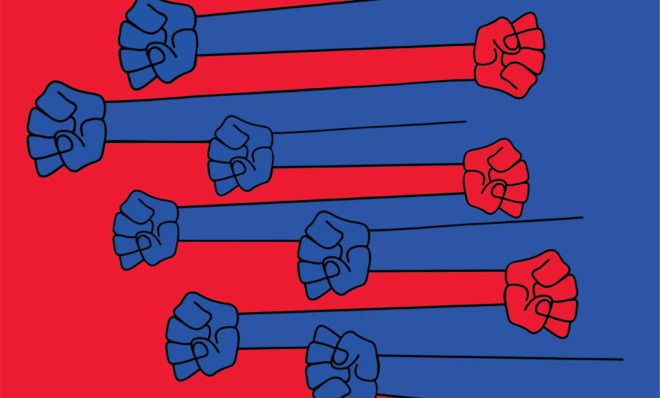When democracy fails
It's not only Iraq and Egypt that have a 'moderate' problem


A free daily email with the biggest news stories of the day – and the best features from TheWeek.com
You are now subscribed
Your newsletter sign-up was successful
A democracy cannot function without good losers. Human beings are not naturally inclined to surrender power to our ideological and cultural adversaries; a society must train and educate its citizens — civilize them, if you will — to tolerate political defeat, seek compromise, and work patiently to regain power by winning the next election. This, Fareed Zakaria argues in The Washington Post, is the fundamental problem with transplanting democracy in the Middle East: There are precious few moderates, and they inevitably lose out to more ruthless extremists.
It's not just the Iraqis, Syrians, Egyptians, or Palestinians who have "a moderate" problem. The U.S. now has one, too. A recent Pew Research survey found that Americans are deliberately sorting themselves into red and blue tribes; we seek to live, work, and socialize with people who share our worldviews and shun those who do not. One out of four Democrats and one out of three Republicans sees the other party "as a threat to the nation's well-being." It is these people, with the most vehement views, who shape our politics: Why compromise with evil? As a result, Washington is dysfunctional, and Congress can no longer reach consensus, make decisions, or even agree how to pay to rebuild aging roads and bridges. In our ideological and cultural silos, meanwhile, our distrust of and contempt for the other tribes deepens. Ferguson, Missouri, provides a particularly ugly reminder of our civic breakdown. When police in armored vehicles point military weapons at crowds of furious protesters — some throwing Molotov cocktails and tweeting "I am ready to die tonight" — you have to wonder where we are headed.
A free daily email with the biggest news stories of the day – and the best features from TheWeek.com
The Week
Escape your echo chamber. Get the facts behind the news, plus analysis from multiple perspectives.

Sign up for The Week's Free Newsletters
From our morning news briefing to a weekly Good News Newsletter, get the best of The Week delivered directly to your inbox.
From our morning news briefing to a weekly Good News Newsletter, get the best of The Week delivered directly to your inbox.
William Falk is editor-in-chief of The Week, and has held that role since the magazine's first issue in 2001. He has previously been a reporter, columnist, and editor at the Gannett Westchester Newspapers and at Newsday, where he was part of two reporting teams that won Pulitzer Prizes.
-
 Political cartoons for February 20
Political cartoons for February 20Cartoons Friday’s political cartoons include just the ice, winter games, and more
-
 Sepsis ‘breakthrough’: the world’s first targeted treatment?
Sepsis ‘breakthrough’: the world’s first targeted treatment?The Explainer New drug could reverse effects of sepsis, rather than trying to treat infection with antibiotics
-
 James Van Der Beek obituary: fresh-faced Dawson’s Creek star
James Van Der Beek obituary: fresh-faced Dawson’s Creek starIn The Spotlight Van Der Beek fronted one of the most successful teen dramas of the 90s – but his Dawson fame proved a double-edged sword
